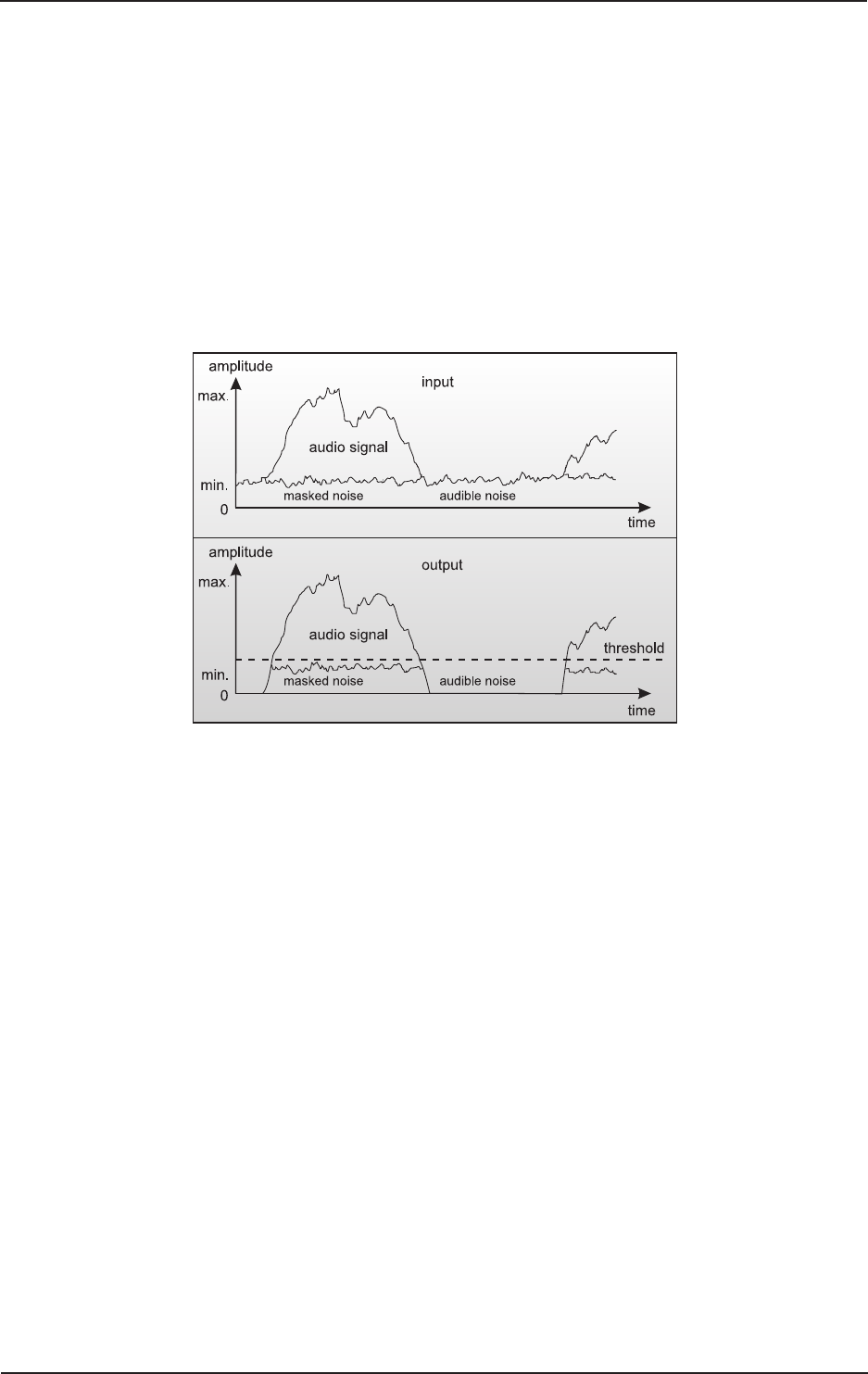
14
MULTIGATE PRO XR4400
5. TECHNICAL BACKGROUND
5.1 EXPANDER mode
As already described, a so-called downward expander automatically reduces the overall level of all signals that
drop below an adjustable threshold, and thus expands the dynamic range of the program material. In other
words, an expander is the opposite of a compressor. Expanders usually work with a relatively flat ratio curve to
fade out the signal smoothly.
Noise gates are a special form of expander using a much steeper ratio curve to abruptly cut the signal when it
drops below the threshold. As expanders and gates are quite similar in what they do the following description
of expanders and their functionalities also applies to noise gates.
Fig. 6.1: Expander mode
5.2 Interactive control functions
Like the COMPOSER, INTELLIGATE, MULTICOM, and others, the MULTIGATE PRO uses the newly
developed INTERACTIVE principle based on a chain of intelligent control functions. For example, the IRC
expander (Interactive Ratio Control) does not use a fixed ratio curve but varies this curve depending on the input
level and the setting of the THRESHOLD control.
The following chapter describes the interactive control functions in full detail:
5.2.1 THRESHOLD control
The THRESHOLD control determines the threshold point and disables the respective channel. As it covers a
very wide setting range it can be easily adapted to any operating level:
Input levels above the adjusted threshold point pass the circuit unprocessed. However, as soon as the input
signal drops below the threshold, dynamics processing sets on. Simple noise gates usually have a control to
set the switch-on and switch-off thresholds, but must perform their task without any dedicated control
elements that allow for varying the envelopes.
The BEHRINGER MULTIGATE PRO, however, is equipped with all necessary control options. The following
section makes clear why it is so important to be able to adjust these parameters.
5. TECHNICAL BACKGROUND


















